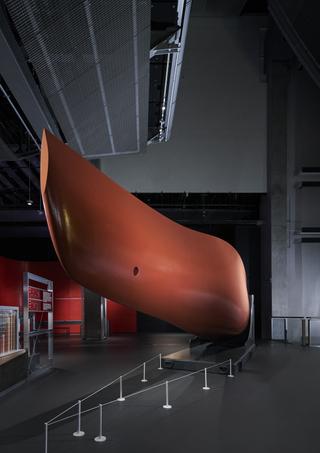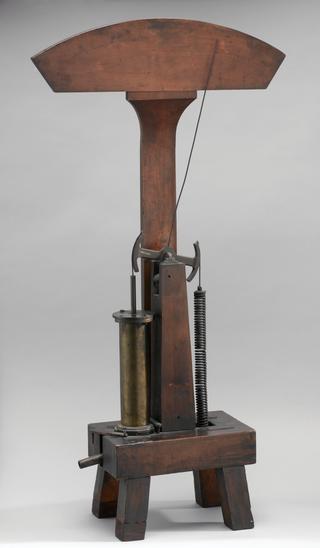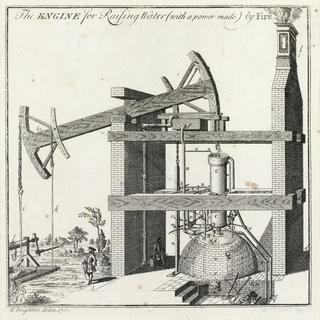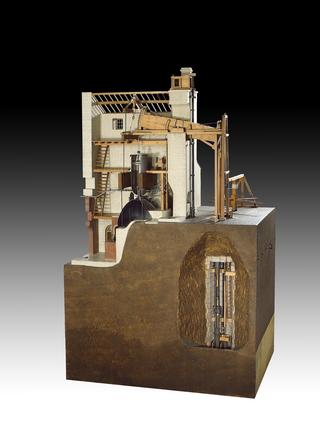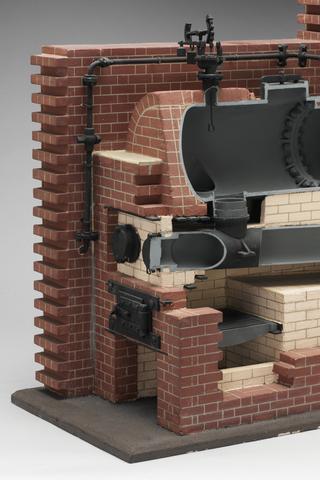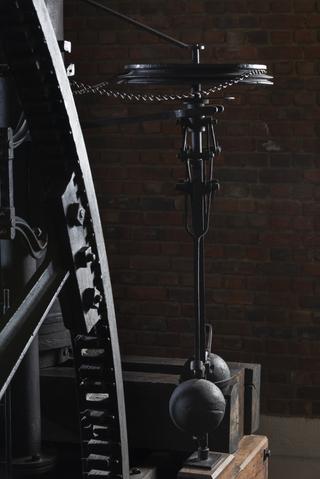
Porte Manville electric governor
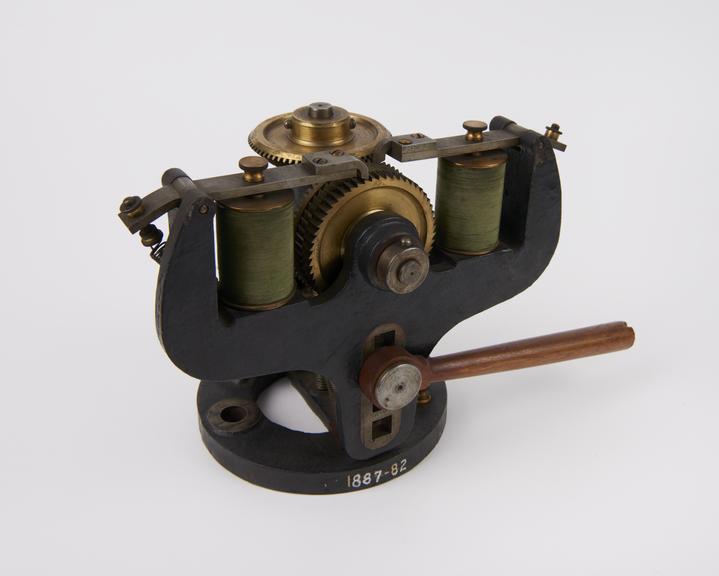
Porte Manville electric governor for maintaining constant speed in engines
This piece of mechanism for controlling electrically the speed of engines or other motors was patented in 1884 by Messrs. A. E. Porte and E. Manville. On a horizontal spindle are two ratchet wheels of equal diameter, but with their teeth cut oppositely. These wheels are secured to a bevel wheel on the same axis, gearing with a bevel wheel on a vertical shaft, which is connected with the steam throttle valve, a set of resistances, or other means for controlling the energy supplied to the motor. On the horizontal spindle is also a rocking frame carrying two opposite pawls which by springs are lifted clear of the ratchet wheels, but the frame is provided with two electro-magnets, each powerful enough when excited to pull the pawl above it into gear. The rocking frame is connected by an arm with some reciprocating part of the motor, so that when a pawl engages, the power brought upon the controlling gear may be very great if required. The actual regulation is determined by the apparatus that sends the current through one or other of the two coils as necessary, the appliance shown being a means for enforcing these corrections. To prevent over-winding, a block on the vertical shaft screws up and down, and breaks the circuit when in the extreme positions.
